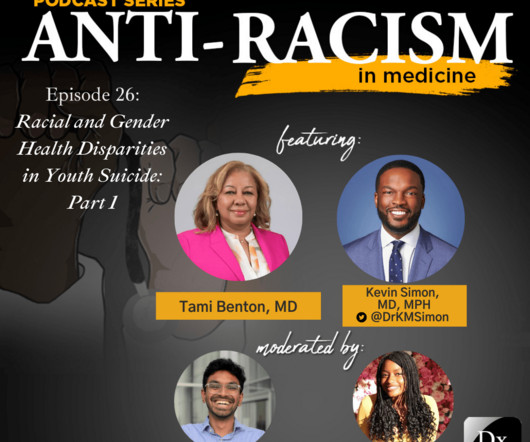Episode 354: Antiracism in Medicine – Episode 25 – Live from SGIM 2024: Best of Antiracism Research at the Society of General Internal Medicine’s 2024 Annual Meeting
The Clinical Problem Solvers
SEPTEMBER 19, 2024
This year’s episode, our fourth conducted at SGIM, is focused on the importance of qualitative research and the role it plays in antiracism research, community-based work, and scholarship. Show Transcript Download CPSolvers App here RLRCPSOLVERS During this episode, we hear from Dr. S. References Ogunwole, S. Zakaria, S., Vaught, A.











Let's personalize your content